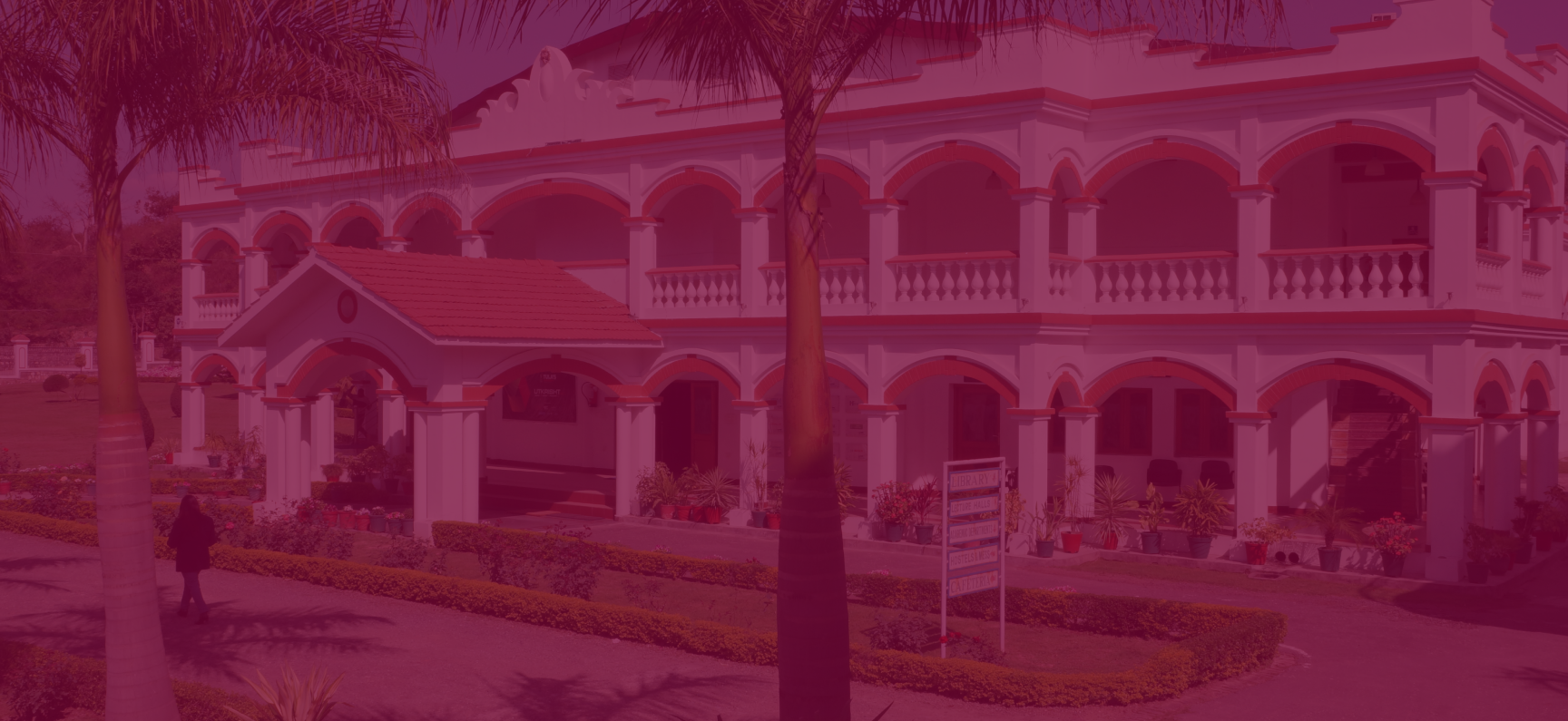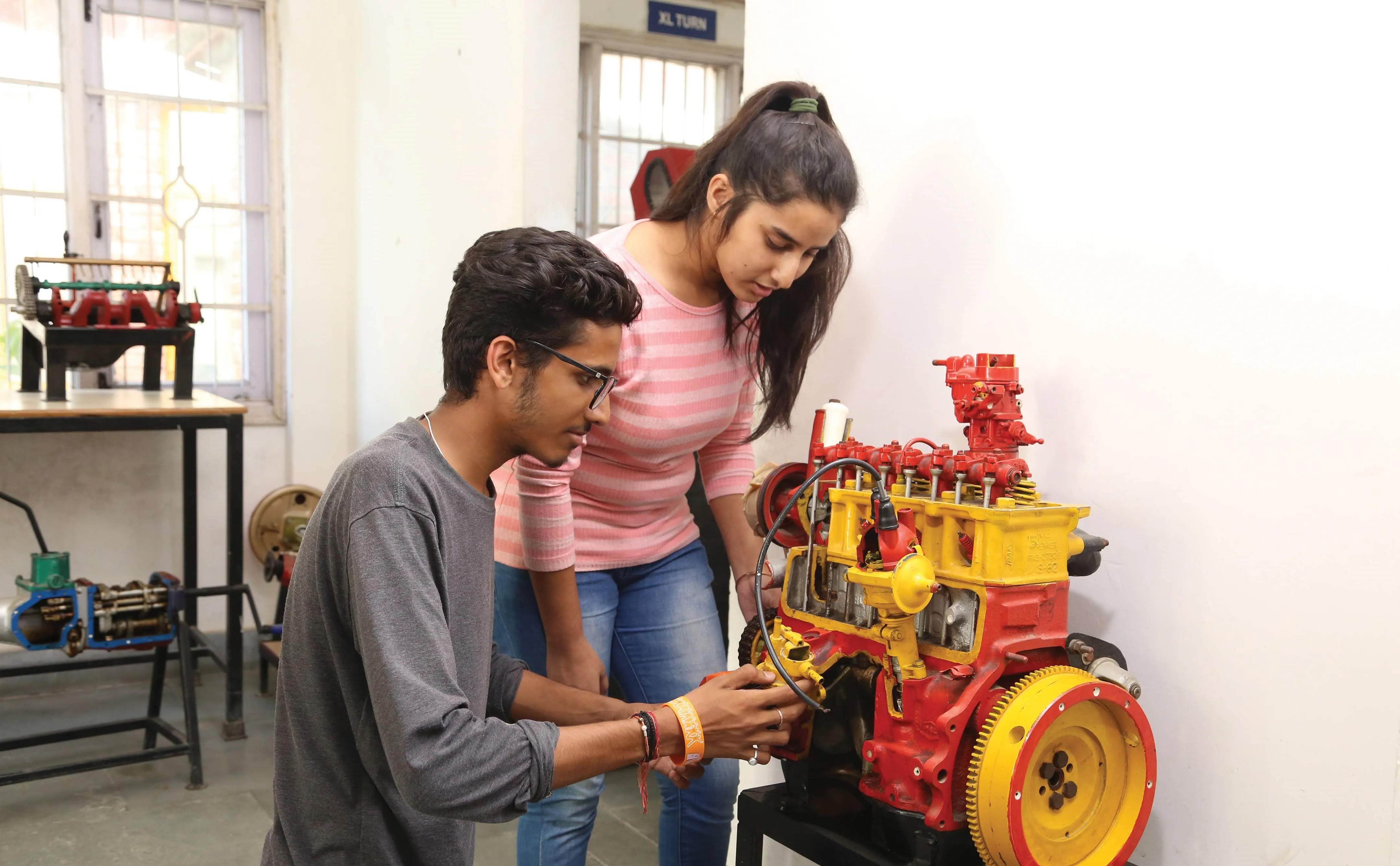
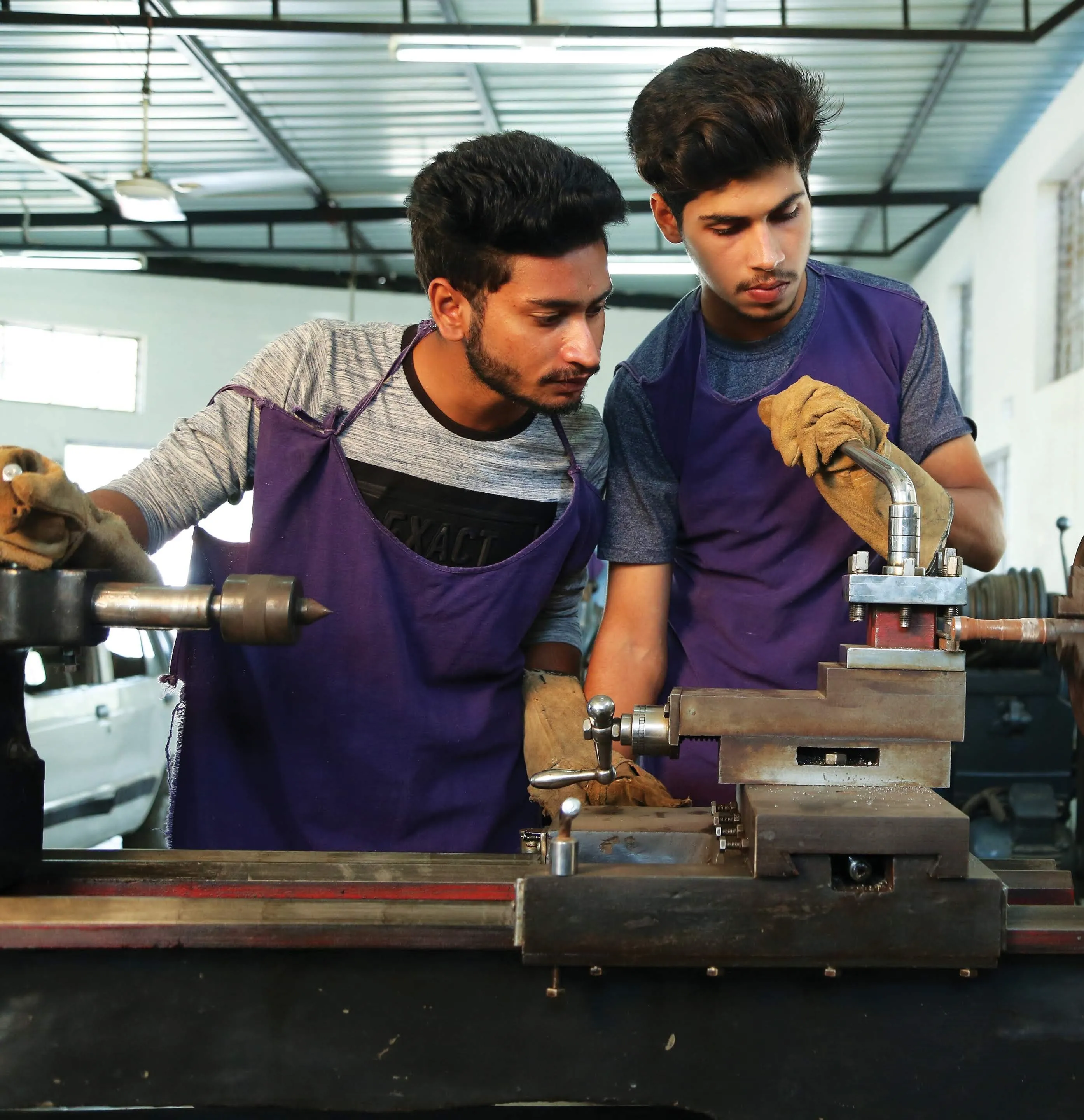
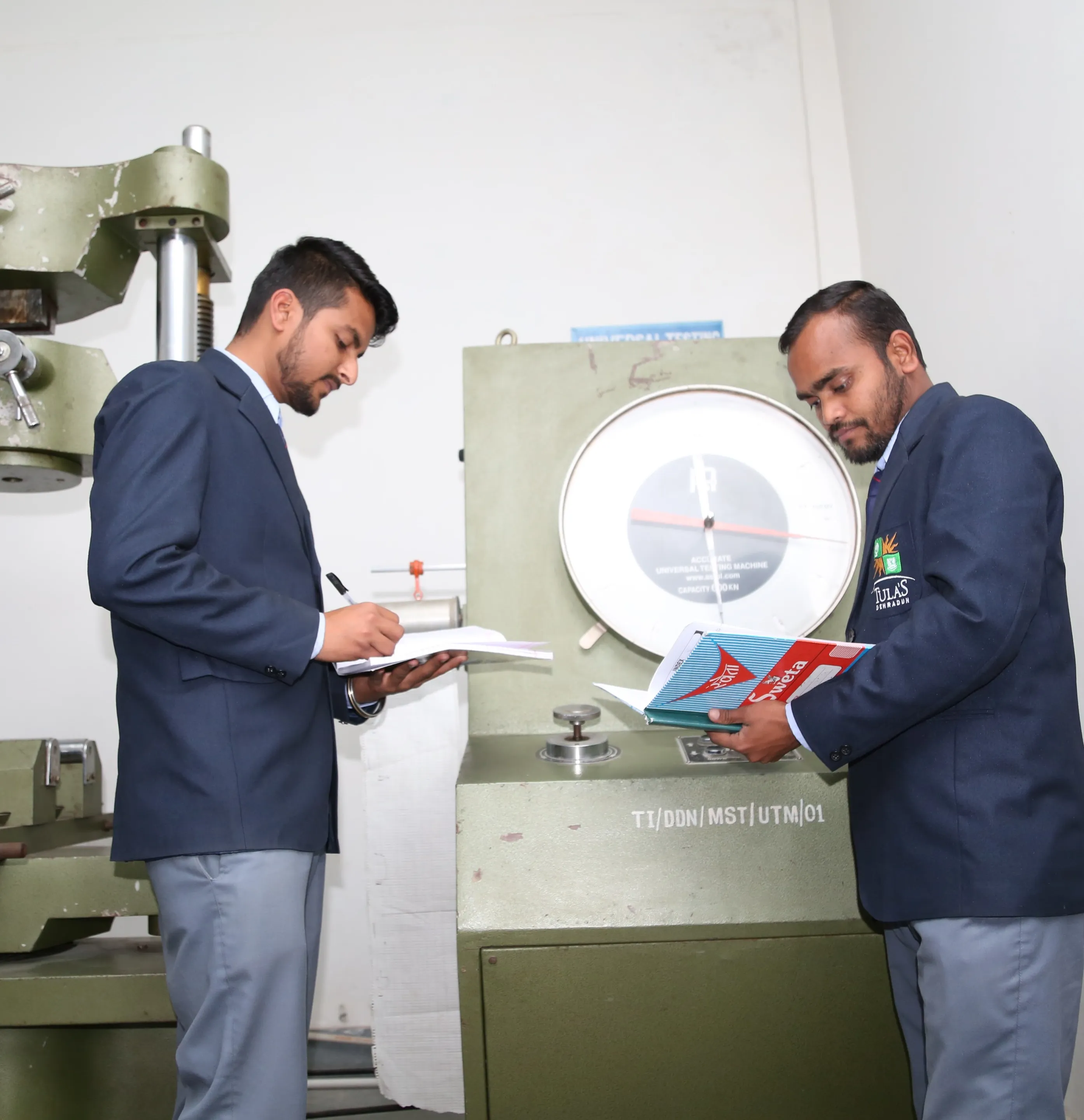
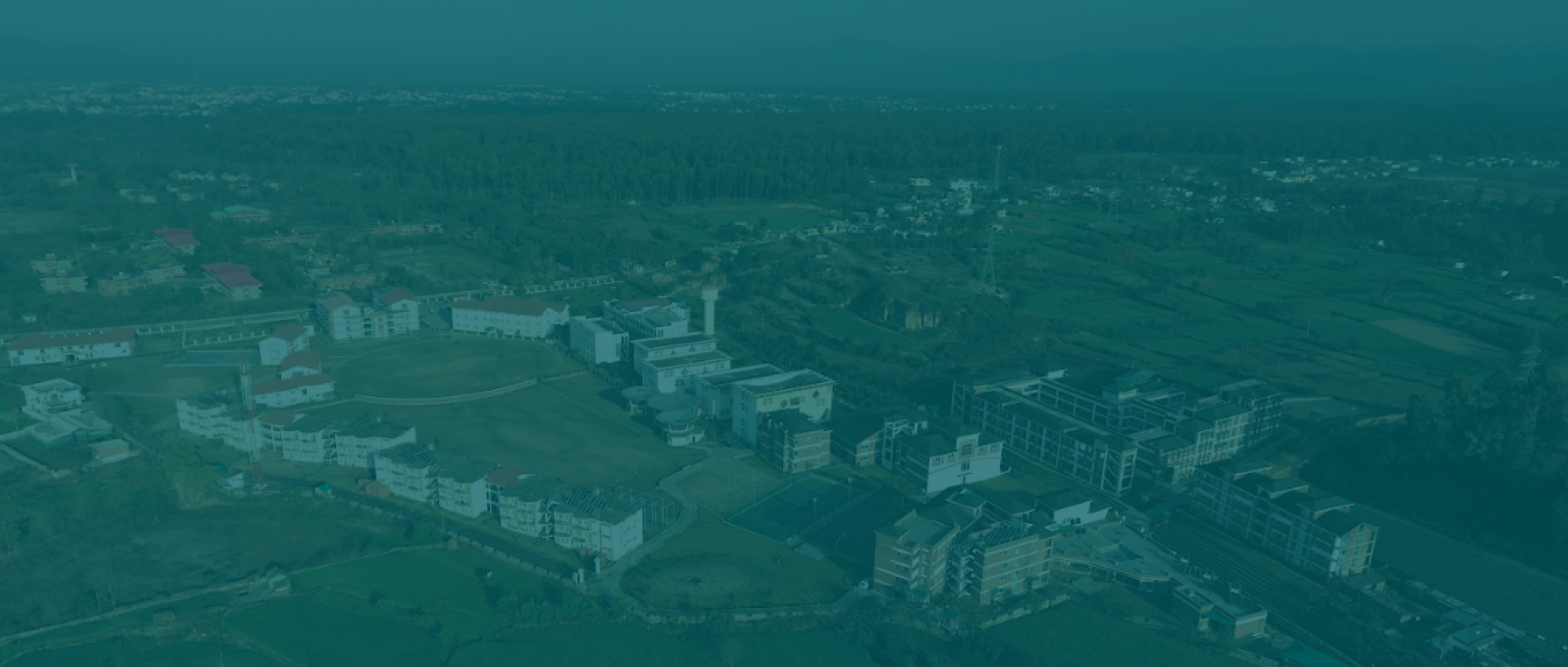
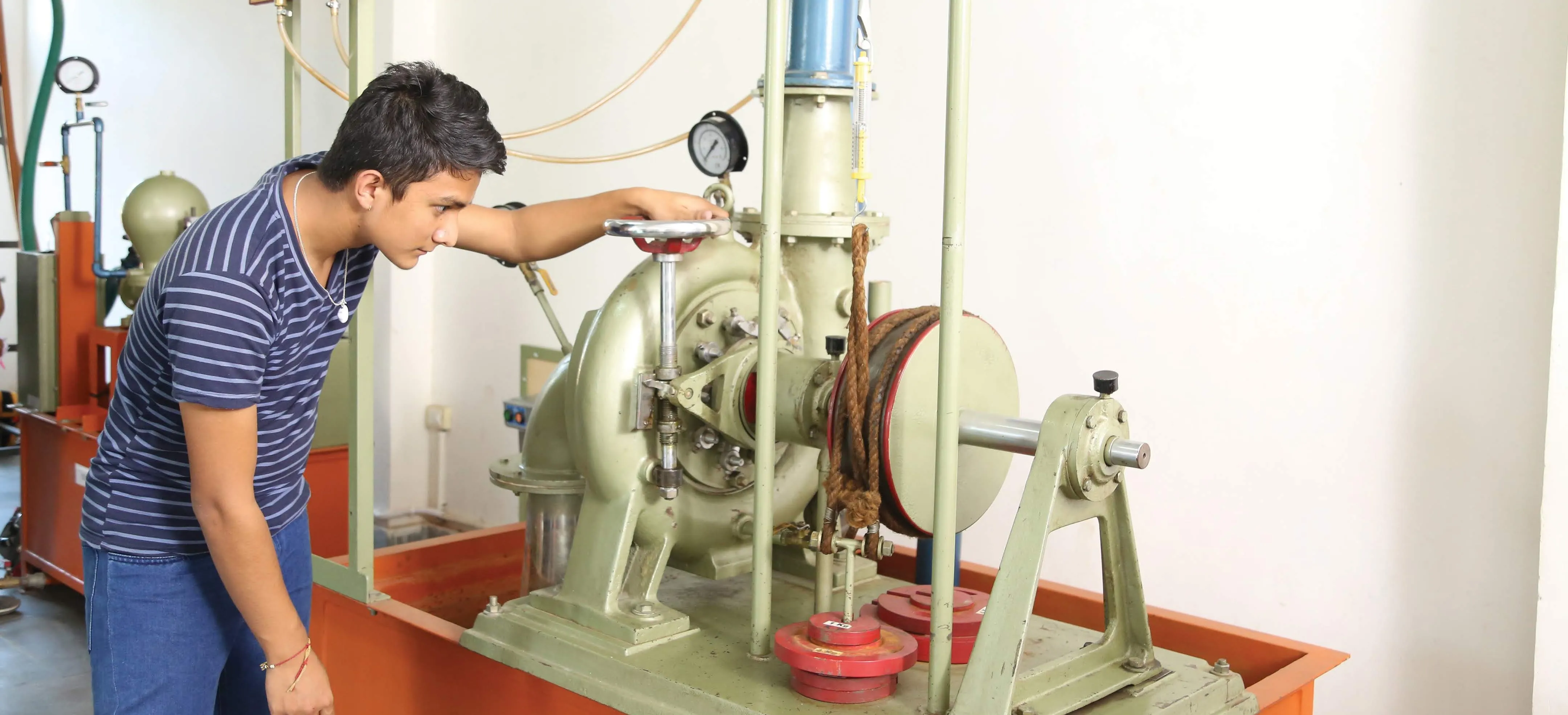
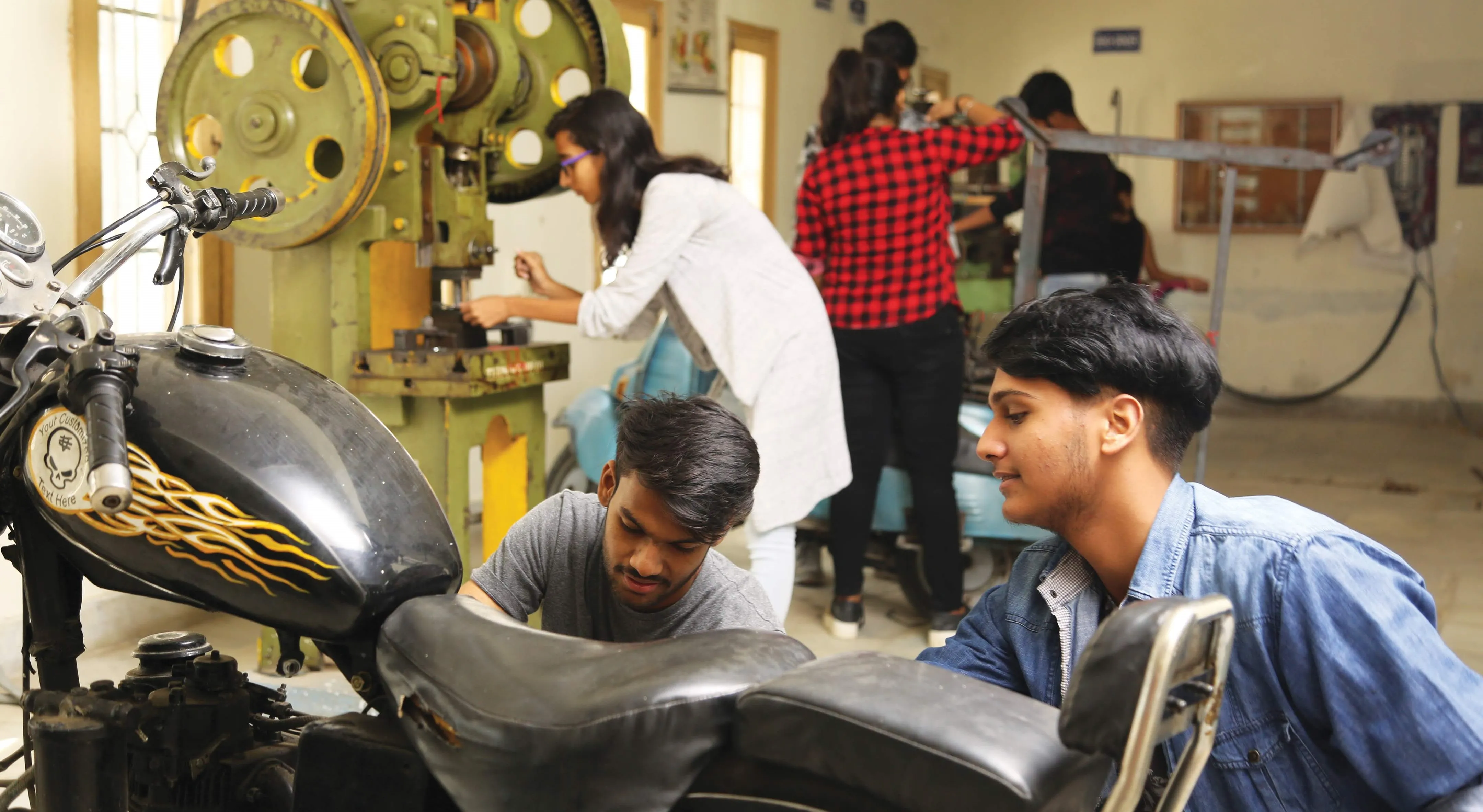
| S.NO | COURSE | DURATION | ELIGIBILITY |
|---|---|---|---|
| 1 | B.Tech | 4 years | Passed 10+2 examination with Physics and Mathematics as compulsory subjects along with one of the Chemistry/ Biotechnology/ Biology/ Technical Vocational subject/ Computer Science/ Information Technology/ Informatics Practices/Agriculture/ Engineering Graphics/ Business Studies. Obtained at least 45% marks (40% marks in case of candidates belonging to reserved category) in the above subjects taken together. OR Passed Diploma (in Engineering and Technology) examination with at least 45% marks (40% marks in case of candidates belonging to reserved category) subject to vacancies in the First Year, in case the vacancies at lateral entry are exhausted. |
| 2 | B.Tech (Lateral Entry/Second Year) | 3 years | a. Passed Diploma examination with at least 45% marks (40% marks in case of candidates belonging to reserved category) in ANY branch of Engineering and Technology. b. Passed B.Sc. Degree from a recognized University as defined by UGC, with at least 45% marks (40% marks in case of candidates belonging to reserved category) and passed 10+2 examination with Mathematics as a subject. c. Provided that the students belonging to B.Sc. Stream, shall clear the subjects Engineering Graphics/ Engineering Drawing and Engineering Mechanics of the First Year Engineering Programme along with the Second year subjects. d. Provided that the students belonging to B.Sc. Stream shall be considered only after filling the supernumerary seats in this category with students belonging to the Diploma stream. e. Passed D.Voc. Stream in the same or allied sector. f. In the above cases, a suitable bridge Courses, if required such as in Mathematics may be conducted. |

